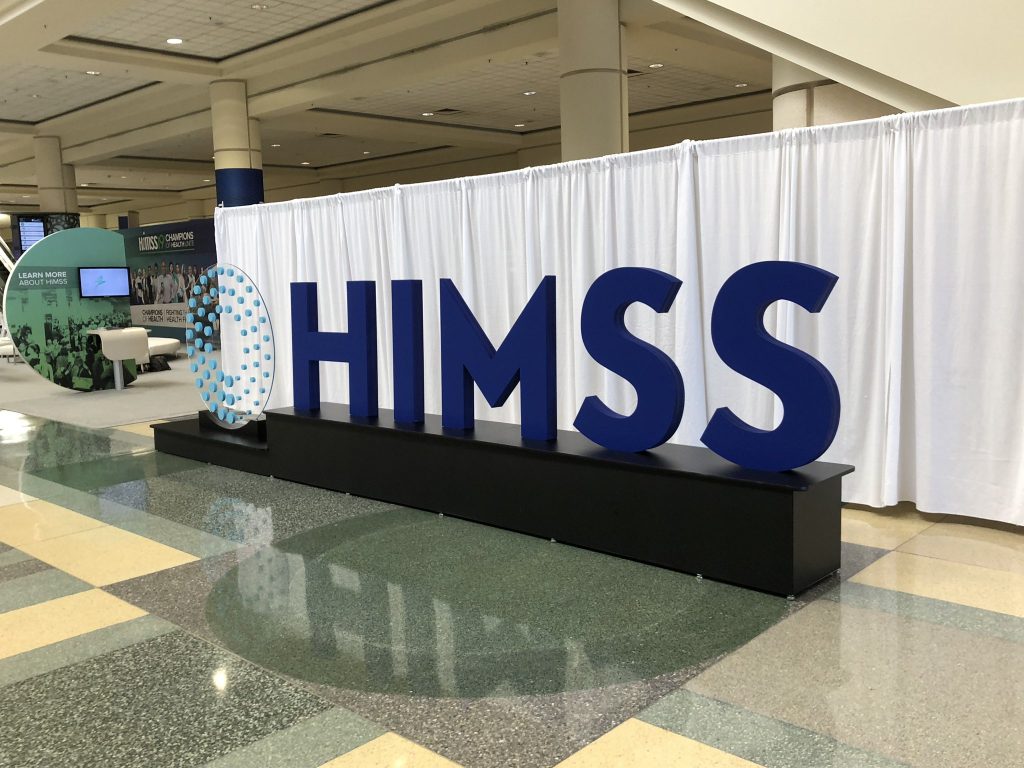Cybersecurity is the No. 1 priority for health information and technology leaders nationwide, while IT budgets and workforces are positioned to grow in the coming year, according to new findings that debuted at the HIMSS19 global conference.
The Health Information Management Systems Society’s (HIMSS) annual Leadership and Workforce Survey found striking similarities in the priorities of health IT providers (hospitals and other care facilities) and vendors (technology service providers).
In addition to each giving top spot to cybersecurity, both categories of survey respondents shared six other top 10 priorities for 2019:
- Improving quality outcomes through information and technology
- Clinical informatics and clinician engagement
- Data science/analytics/clinical and business intelligence
- Process improvement, workflow and change management
- Health information exchange, interoperability, data integration standards
- User experience
“Providers and vendors are really well aligned in terms of their priorities this year,” Mike Kroll, Senior Manager of HIMSS’ Office of the Chief Technology and Innovation Officer, said during the survey’s unveiling at the conference, which ran from Feb. 11 to 15, 2019, in Orlando, Florida.
“We see that as a positive result,” Kroll said. “With both providers and vendors working on these, we’re hoping to see significant progress made.”
Budgets and Jobs
The annual survey is a snapshot of health IT leaders’ appraisal of topics ranging from staffing levels to hiring expectations. Vendors and providers tend to differ in how they generate revenue and view their workforce, but 2019 has brought a convergence in their areas of focus.
The health technology space continues to grow and represents a positive segment of the overall economy. That trend isn’t expected to slow. According to the survey, 60% of healthcare providers will boost IT budgets this year. Among vendors, 81% project IT spending to rise.
In terms of job security, few sectors can match health IT’s stability. Among all respondents, 75% said their workforce remained stable or grew in the past year.
And those workforces are far from fully staffed. Among providers, 52% reported having open positions, while 68% of vendors have vacancies.
Providers vs. Non-Acute Care
The HIMSS survey also looks at differences between care settings, breaking it down by hospitals versus non-acute care, where IT needs, capabilities and requirements can differ greatly.
Perhaps the biggest variance between the two comes in the form of IT leadership.
“Providers and non-acute facilities have remarkably different experiences when it comes to health IT leadership,” Kroll said. “Almost 90% of hospitals employ an IT executive, but in the non-acute space, 53% have no IT executive. To some degree, it makes sense given that non-acute care providers run a smaller IT shop, and, in some cases, you have people wearing multiple hats or they outsource IT services.
“But, ideally, you’d have someone there to lead IT efforts and champion that IT perspective, so we hope to see that change,” he said.
Demand for workers is greater among providers, with more stability in the non-acute care space.
“Hospitals have been going gangbusters for the last three years, adding and adding more workers,” Kroll said. “It’s a little more muted for the non-acute space.”
The Workforce Challenge
The need for workers has been a constant refrain at HIMSS19 and previous conferences. The challenge discussed often at this year’s gathering is how to empower providers with the capability to do more with less through technology.
That will come with a price tag. But, as Kroll was quick to highlight, the current situation also carries a cost.
“If you take a look at the numbers from a different perspective, there’s a lot of pressure on HR teams and organizations to find the right people and keep them,” Kroll said. “Yeah, it looks like there is a lot of opportunity, but people currently working in these environments may be struggling with burnout, and organizations may have to examine compensation packages and how they keep employees happy once they’re in the door.”
This can have knock-on effects, whether it’s delays in IT projects or workforce budget limitations.
“A significant portion of respondents said they were negatively impacted by workforce challenges to the point that they have had to place IT strategies and implementation on hold or back away from them altogether because they don’t have the workforce to make it happen,” Kroll said. “This means companies may have to take smaller bites of the apple until they can get more people in. It appears to be less of a concern with vendors than hospitals.”
*National long-term projections may not reflect local and/or short-term economic or job conditions, and do not guarantee actual job growth. Information provided is not intended to represent a complete list of hiring companies or job titles, and program options do not guarantee career or salary outcomes. Students should conduct independent research for specific employment information.



